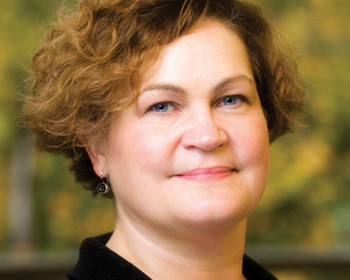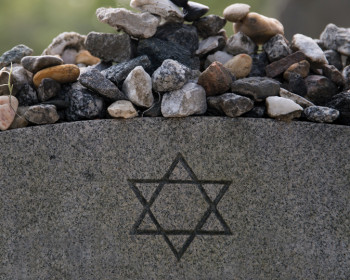Putting Law Into Practice
“I learned how to be a lawyer…”
“I was able to put theory into practice…”
“I learned firsthand how law could make an impact.”
These are the words of the alums, chosen from dozens of their stories, each describing the significant impact of clinics on their legal career.
Impact, though, is a two-way street. While students learn practical skills, they are also making a real difference in the community.
-

Crime Victim Litigation Clinic
The Crime Victim Litigation Clinic (CVLC) supports attorneys representing crime victims in criminal cases nationwide through legal research and writing. Students also help write amicus curiae briefs that are filed in trial and appellate courts and contribute to legal publications on emerging issues in victim law.
Alumna Profile
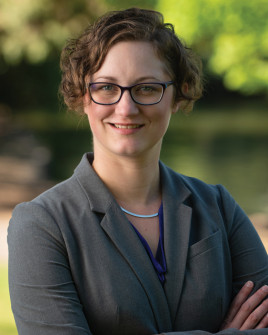
Credit: Kevin KubotaMelanie Kebler ’08Senior Staff Attorney, Oregon Crime Victims Law Center
When did you work in the clinic? What did you do?
In 2007–08. I learned about crime victims’ rights and worked on amicus briefs that were later filed in court cases in other states.
IMPACT
This year, two CVLC students researched and assisted in drafting arguments to inform an appellate brief filed in Arizona on behalf of a crime victim who suffered severe injuries from a dog attack. Previously, an Arizona trial court had ordered $0 in restitution, relying on a limited civil settlement to find the victim had been made whole. On August 10, 2018, the Arizona appellate court ruled in favor of the crime victim.What work are you doing now?
I have just opened the Oregon Crime Victims Law Center’s new satellite office in Bend. We serve crime victims around the state by helping them to assert, enforce, and remedy violations of their rights as crime victims. For about five years now I have been doing the work I first learned was possible in the clinic.
What parts of your clinic experience helped prepare you for your career?
It really opened my eyes to an area of law that I frankly had not known existed. It solidified my willingness to work in the criminal justice system after passing the bar exam. At my first job at the Lincoln County District Attorney’s Office, I specialized in working with domestic violence and sexual assault victims. The clinic was excellent preparation in making sure I did my job while upholding all victims’ rights in my cases.
A memorable moment?
I conducted research for a brief and submitted a page or two on that research. In the final draft, my work was reduced to one footnote! Now I laugh because legal research takes many different directions and in the end it’s important to drill down to the most crucial points. It was a good lesson.
How do you view the clinic now?
Meg Garvin has been a great mentor and her leadership at the NCVLI is stellar. We have a nationally renowned organization leading the way in this area of law right here at Lewis & Clark!
-

Animal Law Clinic
The Animal Law Clinic, the first in the nation with a full-time faculty member, works to promote animal protection on behalf of individual and organizational clients.
Alumna Profile
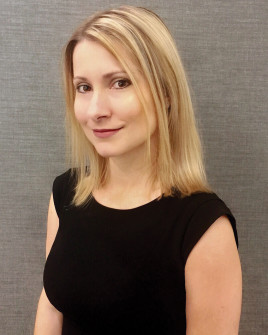
Senior Federal Legislative Specialist, Humane Society of the United States
When did you work in the clinic? What did you do?
Fall semester of 2011 through the spring semester of 2012. I worked on several projects, including innovative litigation and federal rulemaking petitions on current, pressing issues.
IMPACT
In 2017-18, clinic students assisted the Wildwood Farm Sanctuary in Oregon, which takes in abused and neglected farmed animals and rehabilitates them. Their work included updating liability waivers for volunteers and visitors (particularly with children in mind), and conducting research for policies regarding breeding, euthanasia, and transfer of legal ownership.
What work are you doing now?
In my role at the Humane Society, I work to advance federal animal protection legislation in the U.S. Congress and oppose harmful legislation. I develop and execute comprehensive strategies for a number of the organization’s top legislative priorities, such as companion animals and horse protection.
What parts of your clinic experience helped prepare you for your career?
The Animal Law Clinic teaches students to think outside of the box—a skill that is critical in policy work where I often need to approach issues creatively. The clinic also provided the benefit of gaining real-world experience in a number of areas before graduation, such as litigation and regulatory issues.
A memorable moment?
My professor, Kathy Hessler, was a phenomenal mentor. The entire Animal Law Clinic was a memorable experience!
How do you view the clinic now?
Regardless of whether you plan to lobby on Capitol Hill or pursue a career in litigation, I would recommend the Animal Law Clinic to any student interested in gaining experience with legal and policy work before graduating. For those students specifically interested in animal law, the clinic provides exposure to numerous animal protection issues, networking with NGOs, and the opportunity to work on hot topics in the field. Additionally, it provides the valuable experience of working with experts who have a vast wealth of knowledge on these topics.
-

Earthrise
Earthrise Law Center, an environmental legal clinic, provides low- or no-cost legal services for nonprofit conservation organizations in virtually the entire spectrum of environmental and natural resources law. Students participate in all phases of the litigation process, including drafting motions and pleadings, formulating arguments and strategy, and contributing to discussions with clients and opposing parties.
Alumnus Profile
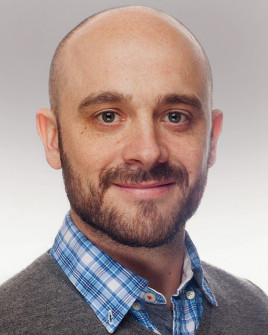
Senior Staff Attorney, Sierra Club’s Beyond Coal Campaign
When did you work at the clinic? What did you do?
I worked at Earthrise between May 2005 and May 2006 on a variety of issues, including helping to draft motions and memoranda in a Clean Air Act enforcement suit against the Owens Corning Corporation for constructing a highly polluting polystyrene foam insulation plant on the edge of the Columbia River Gorge without a permit.
IMPACT
Earthrise attorneys working on behalf of their client, Blue Mountains Biodiversity Project, successfully blocked the U.S. Forest Service in its attempts to authorize clear-cutting at Walton Lake. The Forest Service proposed to commercially log almost all of the large firs around Walton Lake, including the entire old growth fir forest.
What work are you doing now?
Sierra Club’s Beyond Coal Campaign is focused on retiring and displacing all of the nation’s coal-burning electric power plants with renewable energy and energy efficiency measures. I manage and litigate cases involving the Clean Air Act, Clean Water Act, Resource Conservation and Recovery Act, and related claims to force power plant operators to internalize the costs of air and water pollution. I also engage in public utility commission proceedings throughout the country to advocate for more affordable and sustainable alternatives to fossil fuel energy generation.
What parts of your clinic experience helped prepare you for your career?
As a staff attorney for Sierra Club, I’m involved in two separate lawsuits concerning unpermitted modifications and construction of coal-fired power plants in Texas and Louisiana. These cases involve the same enforcement provisions of the Clean Air Act as the Owens Corning suit. My experience at the law clinic definitely provided me with hands-on experience for real-world environmental litigation.
A memorable moment?
One of my favorite memories was accompanying a staff attorney on a site visit to part of the Malheur National Forest that was proposed to be “thinned,” a euphemism for clear-cutting. We spent the day with an expert arborist and biologist documenting species of trees and wildlife. All I could think was, if this is “just another day at the office,” sign me up. I was hooked. Granted, environmental lawyers don’t spend every day hiking in the woods, but our site visits are almost always the most interesting.
How do you view the clinic now?
There really is no substitute for the kind of “nuts and bolts” litigation experience you gain through working at the clinic. From case development and research, to drafting pleadings and motions, to moot court opportunities, and even drafting motions for attorneys fees, the clinic provided me with invaluable practical experience in virtually every aspect of public interest environmental litigation. To this day, I refer to draft and sample pleadings from the clinic. I wouldn’t be an attorney for Sierra Club today without the invaluable guidance, experience, and support I received from the law clinic’s amazing professors and attorneys.
-

Small Business Legal Clinic
The Small Business Legal Clinic (SBLC) serves low-income small and emerging businesses and nonprofits. In the 2017-18 academic year alone, the clinic served 300 businesses in matters involving intellectual property, business formations, employment contracts, and more.
Alumnus Profile
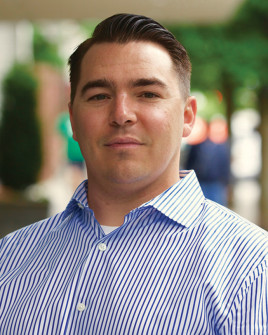
Principal, Mac Legal
When did you work in the clinic? What did you do?
During the fall 2012 semester, I was a student intern. I was a law clerk for 2013-14.
IMPACT
In 2017, SBLC secured a patent for InStove, a product of Institutional Stove Solutions. This highly efficient, solid-fuel cookstove offers cleaner and safer cooking methods for people around the world. “The patent would have otherwise been out of reach for us, as a small business,” said Nick Moses of Institutional Stove.What work are you doing now?
My practice is 100-percent federal trademark work. I represent clients in contested opposition and cancellation proceedings in the Trademark Trial and Appeal Board as well as new trademark applications. I respond to U.S. Patent and Trademark Office actions, pursue and respond to claims of infringement, and counsel clients on brand protection.
What parts of your clinic experience helped prepare you for your career?
The experience of conducting client intake interviews with direction and oversight from SBLC clinical professors was invaluable. The opportunity to manage a client matter from start to finish gave me an introduction to what to expect from the practice of law. I worked on multiple trademark applications. It gave me an understanding of trademark practice that could not come from classes and helped to set me on the path to opening my own trademark-focused firm. I was able to get my first job out of law school with a small firm doing trademark work because of the experience I had at SBLC.
Memorable moments?
I have two. Excruciating (but helpful): watching a video of myself doing a client intake interview and critiquing my performance. One of the best: the opportunity to meet with practicing lawyers at Portland firms and ask them questions about specific client matters we were working on at the clinic.
How do you view the clinic now?
SBLC was the most important and impactful experience in law school for me. The clinic taught me how to be a lawyer more than anything else in law school. At first, I had no intention of starting my own firm, but my SBLC experience gave me the skills and confidence to take on that challenge.
-

Criminal Justice Reform Clinic
The Criminal Justice Reform Clinic (CJRC) provides students with hands-on legal experience while engaging in a critical examination of and participation in important and complex issues in the criminal justice system. CJRC students work on a variety of cases and issues including clemency, parole, prison litigation, immigration, mental illness and incarceration, nonunanimous juries, and removing the criminal-related barriers that keep individuals in poverty.
Alumna Profile
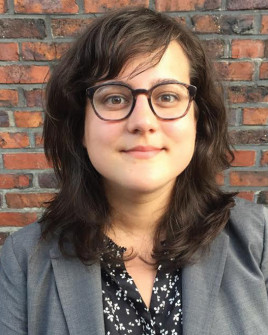
Former Associate, Longview Defenders, PLLC
When did you work in the clinic? What did you do?
I participated in the clinic throughout the 2015–16 academic year. During the fall semester, I worked on a clemency case on behalf of a Washington inmate serving a long prison sentence. During the spring semester, I worked on Oregon juvenile justice policy issues.
IMPACT
In February 2018, Governor Kate Brown ’85 approved a clemency petition prepared by CJRC law students in 2017 on behalf of Dondrae “Choo” Fair. Fair and his employer, Volunteers of America, sought a pardon of a 1992 Robbery I conviction so he could continue his critical work as the lead mentor for the organization’s Gang Impacted Team.I was most recently a public defender as an associate at Longview Defenders, PLLC, a firm with the contract for misdemeanor public defense for the municipality of Longview, WA. I had two trials, many motion hearings, and appeared in court most days of the week. I met with clients when I was not in court. I am now relocating across the country and I hope to continue doing similar work after my move.
What parts of your clinic experience helped prepare you for your career?
I did several externships during law school, but CJRC was my only practical criminal experience. It gave me a new familiarity with the functions of the criminal justice system. My participation in the clemency case gave me the chance to work with a client directly and see something through from start to finish.
A memorable moment?
Interviewing a client who was going to appear before Washington’s Clemency and Pardons Board to seek clemency. It was the first time I had ever been inside a prison and I was very nervous, but the client’s words stuck with me. At the hearing, which happened after my time in the clinic was over, the board decided in favor of clemency in a dramatic 3-1 vote, following poignant testimony from our client’s friends and family.
How do you view the clinic now?
CJRC does not just train students to be prosecutors or defenders, it trains them to keep their eyes open to the system’s flaws and inhumanity. It is vital for a public defender to be educated on wrongful convictions, the inequity of the justice system, where we are in this historical moment, and how we got here. This can help us be allies to the people we represent, rather than part of the problem.
-

International Environmental Law Project
The International Environmental Law Project (IELP) provides students with opportunities to participate in international environmental law and policy, tackling some of today’s most challenging global issues including climate change, biodiversity conservation, oceans and fisheries, and trade, and the environment. IELP works with governments and NGOs to develop, implement, and enforce international environmental law.
Alumna Profile
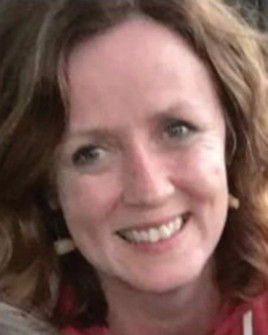
Section Chief, Office of General Counsel, Alaska Section of the National Oceanic and Atmospheric Administration (NOAA)
When did you work in the clinic? What did you do?
I worked at IELP in 2007, when I was a 3L. I advocated for the incorporation of monitoring, control, and surveillance provisions in the Pacific Salmon Treaty. I also gathered and analyzed trade data and prepared an analysis of the Convention on International Trade of Endangered Species of Wild Fauna and Flora (CITES) permitting rules. Finally, I traveled with Professors Chris Wold and Erica Lyman to the 14th CITES Conference in The Hague, Netherlands, to engage governmental and nongovernmental delegates in discussions about the issues for which IELP was advocating.
IMPACT
IELP recently challenged the failure of Japan and Korea to provide valuable fisheries data to the Western and Central Pacific Fisheries Commission (WCPFC). IELP debunked the argument of those two WCPFC members who declared they had “domestic legal constraints” preventing them from submitting the data. Japan and Korea are now submitting their fisheries data.
What work are you doing now?
As the section chief for NOAA’s Alaska Section, I supervise seven attorneys and related professional staff. Most recently, I was a member of the U.S. delegation at the Fourth Meeting of the North Pacific Fisheries Commission in Tokyo. I’ve provided legal advice to NOAA Fisheries on issues arising under the Magnuson-Stevens Fishery Conservation and Management Act, the Northern Pacific Halibut Act, the Endangered Species Act, and the Marine Mammal Protection Act, among others.
What parts of your clinic experience helped prepare you for your career?
At IELP, I drafted analytical documents in preparation for the CITES Conference. I received valuable mentoring from Professors Wold and Lyman, who taught me to embrace the revision process. Based on their advice that stressed “know your audience,” their quick feedback on my written products, and their high expectations, I learned to convey complex concepts to a wide range of individuals holding different perspectives.
A memorable moment?
During the CITES Conference, I observed a nongovernmental delegate passing out information bulletins opposing a U.S. proposal to remove lynx from CITES Appendix II. An official at the CITES Conference informed the delegate that she was prohibited from passing out the bulletins. In response, the delegate approached members of the U.S. delegation and requested that they ask the CITES official to allow her to continue to pass them out. The United States did not hesitate to intervene despite the fact that the bulletins at issue provided information opposing a U.S. proposal. In that moment I knew that I wanted to work for the U.S. federal government.
How do you view the clinic now?
IELP affords each student the opportunity to take ownership of a specific international environmental issue, with the flexibility to tailor their projects to personal interests where feasible. IELP harnesses students’ passion for preserving species and their environments for future generations.
-

Low Income Taxpayer Clinic
Lewis & Clark Low Income Taxpayer Clinic (LITC) gives students the opportunity to represent taxpayers of lesser means in controversies with the Internal Revenue Service, including audits and appeals before the IRS, trials and hearings before the U.S. Tax Court, and appeals to the U.S. Court of Appeals for the Ninth Circuit.
Alumna Profile
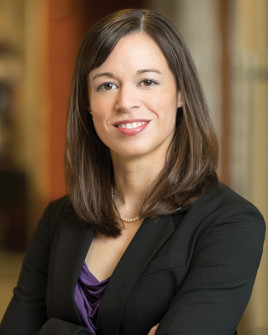
Of Counsel, Samuels Yoelin Kantor LLP
When did you work in the clinic? What did you do?
During 2007-08, both as a student and a law clerk.
IMPACT
A former wife of a self-employed husband came to LITC for help with the IRS and her joint tax liability of six figures. She had no income and her husband controlled all the family finances. She had also experienced emotional and physical abuse. After filing a petition in U.S. Tax Court, the LITC obtained innocent spouse relief for this client, freeing her from the liability that resulted from the joint return.
My practice focuses on taxation, estate planning, trust and estate administration, business formation and transactions, tax controversies, business succession planning and wealth preservation, and trust and estate (fiduciary) litigation. I am admitted to practice in Oregon and Washington, and serve on the Executive Committee for the Taxation Section as past chair of the New Tax Lawyers Committee.
What parts of your clinic experience helped prepare you for your career?
All of it! Clinic was where I had my first meeting with a client, wrote my first letter to a client, prepared my first real court pleading, and gave client news on the outcome of their case. While all of these firsts would have occurred eventually, the benefit of clinic is that the professors were willing to adequately prepare me and immediately give me feedback on my performance, which I had time to reflect on. So often in practice we do not have the time to coach new associates or clerks with the same level of attention or to provide helpful and specific feedback.
A memorable moment?
I remember a conversation with Professor Jan Pierce about the definition of gross income. Under Section 61 of the Internal Revenue Code, “gross income” means all income from whatever source derived. According to Jan, this definition is similar to Congress saying “dirt is dirt no matter where you get it from.” I almost died laughing and I use it all the time with clients and in presentations. It is such a funny and approachable starting point for explaining to clients that not every answer is quickly available in the tax code.
How do you view the clinic now?
Clinic was the best class I took as a student. I learned what the daily practice of law would be like and obtained an understanding of what would be expected of me as a young attorney. It gave me confidence in my developing skill set and helped me worry less during my first year in practice. Clinic taught me that I would make mistakes as a new attorney and how I should handle those mistakes. Clinic is where I first learned that I would enjoy practicing law.
More Advocate Magazine Stories
email jasbury@lclark.edu
voice 503-768-6605
Judy Asbury, Assistant Dean, Communications and External Relations
Advocate Magazine
Lewis & Clark Law School
10101 S. Terwilliger Boulevard MSC 51
Portland OR 97219
